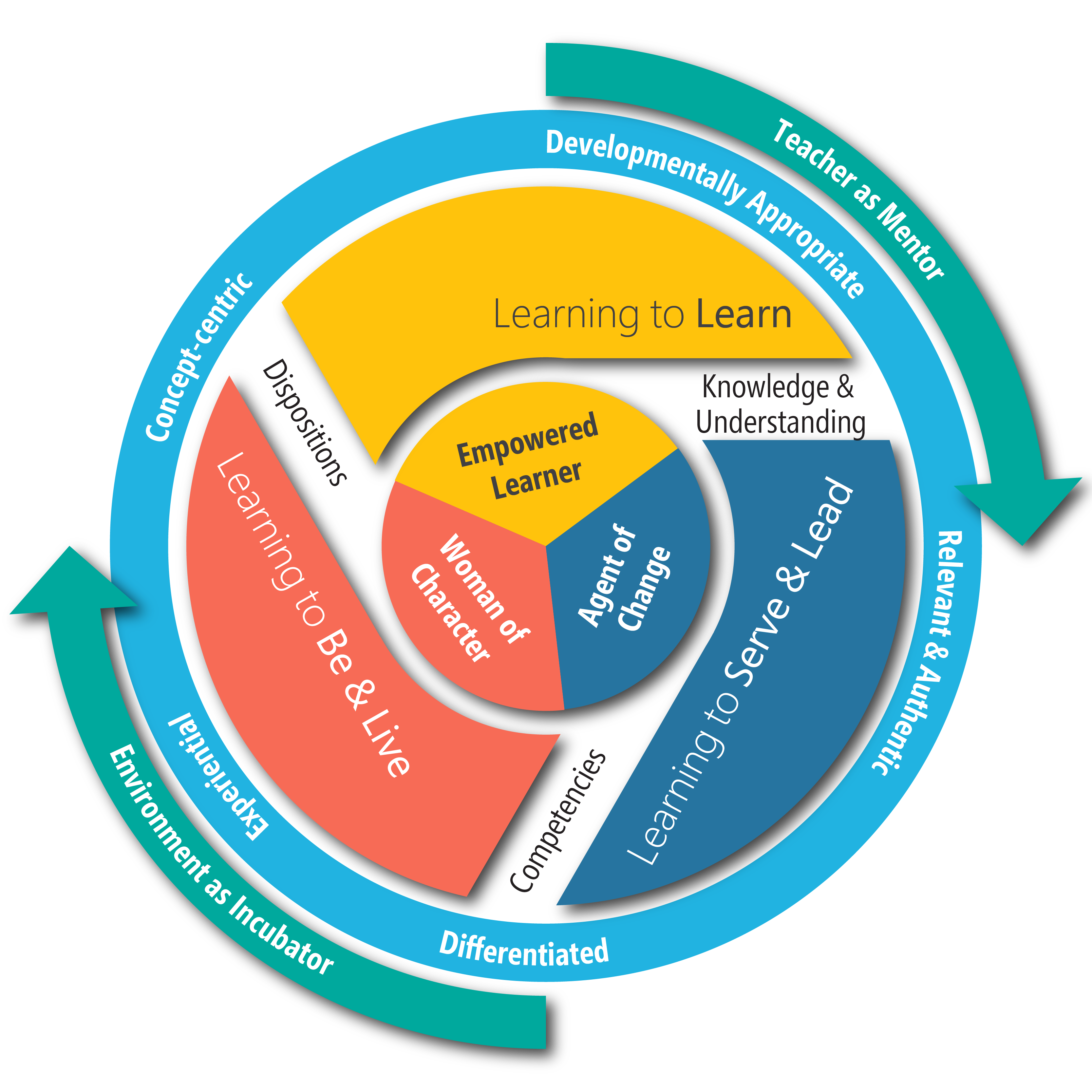Academic
Curriculum Overview
The Academic Curriculum spans four years and prepares students for the Integrated Programme (IP). The IP curriculum aims to stretch students beyond the requirements of the O-Level examinations/syllabus and offers students a more challenging curriculum with meaningful assessments.

Since 2016, our school has adopted Dr Lynn Erickson’s Concept-based Approach in teaching and learning. It ensures that students develop deep conceptual understanding and thinking which will enable them to transfer knowledge and skills across time, situations and contexts.
Besides using the Concept-based Approach in integrating the curriculum within and across disciplines, Design Thinking and Maker Education are also used in designing the interdisciplinary projects to bring about innovative and creative thinking anchored in empathy.
Core Subjects
Our Academic Curriculum is broad-based at the lower secondary levels and is designed to enable students to pursue a course of study based on aptitude, strength, interest and aspiration at upper secondary and higher levels of studies.
The categories in general are:
- the Core Academic Programme that is for all students and is mainly conducted during school hours,
- the Advanced Academic Programmes that are subject-specific for a selected group of Upper Secondary students with specific aptitude, attitude and strength. Students offer these subjects at greater depth of learning and lessons are conducted mainly during curriculum hours unless otherwise stated. Examples are Advanced Mathematics, Advanced Physics, Advanced Chemistry and Advanced Biology.
- the Academic Special Programmes that are subject-specific for selected groups of students with specific aptitude, attitude and strength. There are two components:
- Advanced Academic Programme with customised talent development programmes. Examples are Art Elective Programme, Higher Music Programme, Bicultural Studies Programme, Humanities Programme and Science & Math Talent Programme.
- Specialized Programmes outside curriculum hours in school such as Malay Special Programme or outside school such as 3rd Language offered at the Ministry of Education Language Centre.
- the Enrichment Programme which offers options for all or selected students outside curriculum hours.
Students who are eligible for Academic Special Programmes are only allowed to take one Special Programme.
ASSESSMENT POLICY
Assessment in NYGH is integral to all teaching and learning. Assessment exists primarily to support and encourage student learning by enabling both teachers and students to gather and analyse the extent to which desired knowledge, understanding, skills and attitudes are effectively taught, learnt and demonstrated. This is done through two broad categories of assessment: Formative Assessment and Summative Assessment.
Assessment in NYGH seeks to:
- Monitor the progress of student learning and development
- Provide coherent and timely feedback for students, parents and stakeholders to assist students in their learning
- Evaluate students’ outcomes objectively against the intended outcomes of the programme or syllabus
- Provide teachers with data and evidence relevant in evaluating the effectiveness of their teaching and/or programmes
- Enable students to demonstrate what they know and can do
- Clarify student understanding of concepts and promote deeper understanding
- Provide evidence that current understanding and skills are a suitable basis for future learning.
In NYGH, we believe that learning is an on-going process and formative assessments of multiple modes provide both students and teachers with checkpoints at different times for continuous improvement. Summative Assessments, on the other hand are helpful for making placement decisions.

